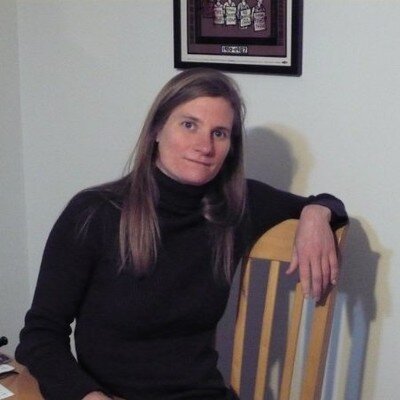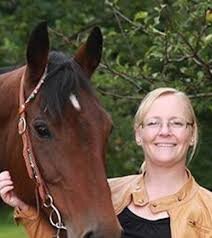Fall 2020 Dialogue Series
This online dialogue series shared timely ideas about how social change organizations can develop and maintain conditions for productivity and purpose while they are operating largely remotely. These videos are available below along as well as at Social Innovations Journal with the articles that drew on the 2019 Netweaver Dialogues series.
The format for these one-hour talks is a 15 minute introduction of the guest and the theme, followed by a 30 minute dialogue, and concluding with questions from students at the University of Colorado’s Masters of the Environment and Program in Environmental Design.
Dialogue Overview:
Our guests discussed how to maintain lively and effective communities remotely in arenas that are critical to social-ecological health, including managing wildfire, creating and supplying healthy food equitably, and transitioning from carbon-based energy to renewable sources.
They consider not only ways to support deep thinking about desirable futures, but also how to enable their organizations to actively pursue changes that challenge the underlying beliefs and relationships that currently structure our world.
Our emphasis is on sharing the practical wisdom of people who have been managing meaningful and impactful work remotely for many years – our guest are weavers of large-scale collaborative learning networks, which can be powerful engines for change but take special skill and attention to create and maintain.
This series explored questions that have become ever more important within our virtualized world and are now even more urgent during the COVID 19 pandemic.
Schedule and Speaker List
Lynn Decker
Series Introduction: Social Innovation in a Time of Disruption
Lynn recently retired as the Director of the North American Fire Initiative for the Nature Conservancy where she previously led the North American Fire Learning Network, which engaged and networked 200 landscape-based collaborations across the US and internationally, Lynn also developed four other learning networks, with the aim of catalyzing a shift from a predominantly fire suppression approach to restoration of fire dependent landscapes, cultures, and resilience of communities living in a changing fire environment.
Gail Francis
How you show up in your network (“Promote both love and discord”)
Gail is the Strategic Director of the RE-AMP Network, which connects more than 130 member organizations to co-create equitable climate-protecting strategies in the Midwest. She holds an M.S. in Systems Thinking in Practice, and founded the RE-AMP Systems Thinking Academy. Prior to coming to RE-AMP, she founded the Labor in the New Energy Economy program at the Center on Wisconsin Strategy, and previously worked as a labor and community organizer.
Michelle Medley-Daniels
How to organize your network so it becomes self-generating (“Jumpstart virtuous cycles”)
As the Co-Director of the Fire Adapted Communities Learning Network, Michelle works alongside partners at The Nature Conservancy to direct the operations of a national network of communities learning to live better with wildfire. Her focus is on working with State and regional efforts to launch network-based approaches to wildfire resilience. She is inspired by the work that communities are doing to redefine their relationships with fire. Michelle also serves as the Deputy Director of The Watershed Center with a focus on the practices to be implemented locally to restore a relationship with fire in the Klamath-Siskiyou Mountains of northern California.
Sarah Ann Shanahan
How to manage your community over time (“Don’t age – evolve”)
Sarah Ann Shanahan is the Director of Community Management for RE-AMP and has served the Network for over a decade. Her role is to foster the health of the Network by supporting the connections and collaboration of its members. RE-AMP’s motto for addressing complex problems is to “Think Systemically and Act Collaboratively.” This has inspired her to pioneer a new way for the Network to see, understand, and take wise action for itself through the development of a social systems map. She is an Associate of the Human Systems Dynamics Institute and holds a Bachelors of Science from UW-Madison.
Curtis Ogden
Karen Spiller
How to respond to crisis (“Change the systems and change ourselves”)
Curtis Ogden and Karen A. Spiller
Curtis is a network team member of the Food Solutions New England regional network. At the Interaction Institute for Social Change, Curtis consults with multi-stakeholder networks to strengthen and transform food public health, education, and economic development systems at local, state, regional, and national levels. He has worked with networks to launch and evolve through various stages of development. In addition to his work at IISC, Curtis is on the advisory board of EmbraceRace, a member of the Research Alliance for Regenerative Economics (RARE) and the Emerging Networks Governance Initiative (ENGI) and shares the Thomas W. Haas Professorship in Sustainable Food Systems at the University of New Hampshire where he is engaged in scholarship on the intersection of networks and racial equity.
Karen is the Principal of KAS Consulting based in Boston, MA and provides mission-based consulting with a focus on advocacy, resource matching, board development and strategic planning for health and equity-focused initiatives. With a focus on racial equity and intersectionality, Karen works with local, state, regional and national organizations committed to creating equitable public health and sustainable food systems. Involved in state-wide and regional food system work, Karen is a steering committee member of and Massachusetts Ambassador for Food Solutions New England (FSNE), a six-state network focused on food system transformation with racial equity at its core. She currently is a board member of the Boston Food Forest Coalition, Sustainable Business Network of Massachusetts, Northeast Sustainable Agriculture Working Group and is a community food system mentor for Wallace Center at Winrock International. As the Thomas W. Haas Professor of Sustainable Food Systems at University of New Hampshire, Durham, Karen is engaged in scholarship on the intersection of networks and racial equity across the campus and its surrounding community. Celebrating its 6th year of national and international participation in April, Karen co-leads the FSNE’s 21 -Day Habit Building Challenge designed to “build skill and will” and action to address racial inequities, through a food system lens






